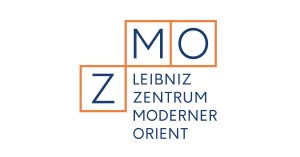Postdoctoral research fellow at ZMO
Timely Histories: A Social History of Time in South Asia
The Leibniz-Zentrum Moderner Orient (ZMO) in Berlin invites applications for the position of a post-doctoral research fellow with a 3-year contract, starting 1 January 2021.
The successful candidate will work in the European Research Council funded Consolidator Grant project, Timely Histories: A Social History of Time in South Asia, which will run at ZMO for five years. The project, led by Nitin Sinha (principal investigator), will comprise two doctoral, two postdoctoral, and one research assistant positions.
The salary grade for the advertised position corresponds to the German scheme of employment in the public sector (TVöD E13, 100%). Additional funds for research travel, conference participation,and publications are available. The successful candidate will be required to be based in Berlin. We especially encourage senior researchers to apply, in which case the salary will be adequately determined within the prescribed legal framework.
General outline of the project: TIMEHIST – Timely Histories: A Social History of Time in South Asia aims to write a history of t ime and temporal cultures in South Asia between the 1500s and the 1950s on a practice- and process-based understanding of the past.
Advertised position: We seek to hire a postdoctoral researcher working on the unit ‘time in early modern period’ (16th – 18th century). One of the central premises of the project is that modern temporal cultures cannot be studied in isolation by only looking at a period historically defined as modern, with a de-ining characteristic of an empty and abstract notion of time. For instance, even with alterations, the calendrical time of the early modern period continued to remain important in revenue bureaucracy of t he colonial state. What was the nexus between calendrical time, ritual time, and bureaucratic time in the early modern period? Similarly, the widespread references to the use of water clocks in the sources of the pre-/ early modern period require systematic exploration. The early modern notions of temporality were embedded in narrative forms, which were often dismissed as ‘ahistorical’ in the colonialist understanding. Wielding a nuanced understanding of literary cultures, the chosen candidate will primarily research on:
- histories of calendars, clocks, and other time measuring devices and their significance in early modern temporal cultures;
- ways in which nocturnal times were organised and controlled;
- Arriving at a general picture of ‘temporal cultures’ in early modern period while also using their pe-iod-expertise in providing necessary inputs to other units.
Application
Please collate all materials in one single PDF file and send it to Dr Silke Nagel (zmo@zmo.de) by 30 July with the subject ERC-TIMEHIST-EARLYMOD. Please copy your application to timely.histories@gmail.com
